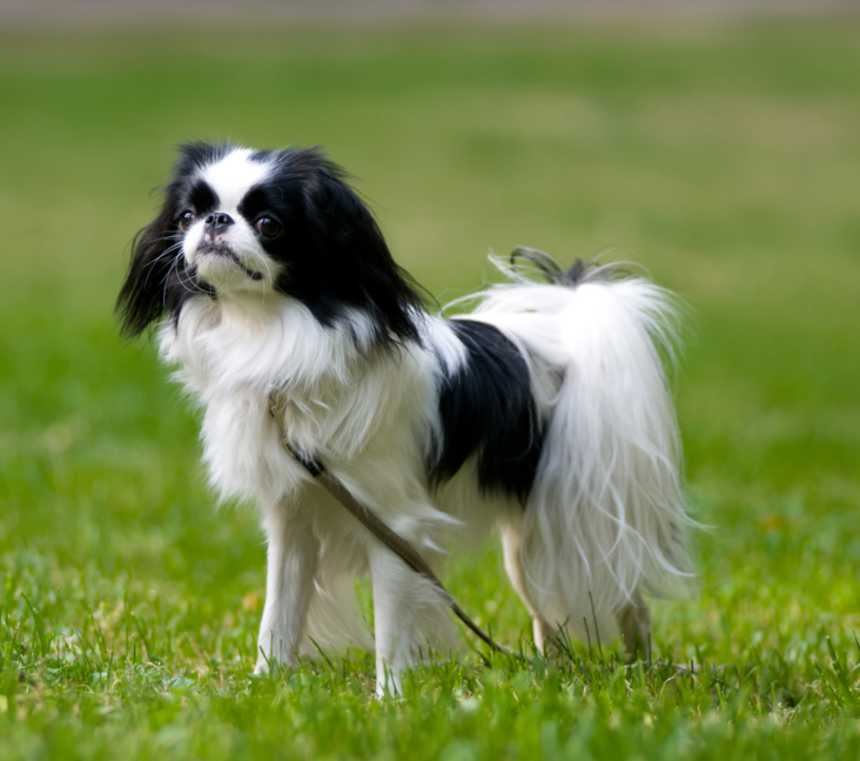Are Japanese Chins healthy?

Yes, Japanese Chins can be a healthy breed when responsibly bred. However, some individuals have particularly flat faces from poor breeding that can lead to lifelong health issues. Additionally, they have an increased risk of a few common genetic diseases. Here are some health issues that may affect your Japanese Chin:
- Legg-Calve-Perthes: This is a condition that causes the head of the femur (located in a dog’s hind leg) to spontaneously degenerate. Over time, this will lead to erosion of the hip joint and arthritis. A Japanese Chin suffering from Legg-Calve-Perthes will become lame, limp while walking, and experience pain when moving the hip joint. Surgery is the most effective treatment for the disorder.
- Patellar luxation: Also known as slipped kneecaps, patellar luxation is a common problem in many dog breeds. It occurs when slight abnormalities cause the knee joint to slide in and out of place, which can cause pain and occasional lameness. Surgical treatment is available for severe cases, although many dogs lead normal lives without treatment.
- Eye disorders: These disorders can include progressive retinal atrophy (PRA), a progressive degenerative disease affecting the retina that eventually leads to blindness; entropion, a genetic defect where one or both eyelids are inverted or roll inward and rub on the surface of the eye; and cataracts, a common eye condition that causes cloudiness in the eye and obstructs vision.
- Atrioventricular Endocardiosis: This condition occurs when polysaccharide (a type of carbohydrate) deposits distort the shape of the heart’s mitral and tricuspid valves, leading to leakage and other complications. Severe cases can lead to heart failure.
- Others: Heart murmurs and respiratory issues can be common in this breed. Your vet may recommend joint, eye, and imaging tests for your dog.
Regular vet check-ups, a balanced diet, proper grooming, and preventive care can help your pup live a long and fulfilling life.